Ethnic sentiments in Nigerian journalism have exacerbated national divisions, amplifying stereotypes and fuelling mistrust among ethnic groups.
The recent petition to the National Broadcasting Commission (NBC) by a coalition of South East media professionals against Dr Reuben Abati of (and) Arise TV underscores the rising ethnic sentiments in Nigerian journalism. The petition highlights Abati’s alleged Igbophobic remarks during a broadcast on 21 November 2024, where he claimed that “Igbos are unwelcoming to non-Igbos seeking to buy land.” Reports indicate that these comments have been further amplified by extremist groups like Lagospidia, known for their anti-Igbo sentiments, thereby exacerbating ethnic tensions in an already fragile socio-political climate.
Join our WhatsApp ChannelAbati and the Pattern of Igbophobia
In the November broadcast, Abati made his statement citing the experience of Nigeria’s first Minister of Information, the late Chief T.O.S. Benson, who allegedly faced difficulties purchasing land due to his non-Igbo status. He stated, “You go there as a non-Igbo man to go and buy land; you’ll be told that you don’t belong, even as an in-law.”
Abati’s remark that “the same Igbos who are so industrious that they’re all over and do well in other parts of Nigeria” are simultaneously unwelcoming to outsiders exemplifies his contradictory narrative. This assertion has been criticised for generalising the experiences of one individual to an entire ethnic group.
This is because Abati’s history of Igbophobia in journalism has been a long-standing issue, marked by several controversial instances that have drawn significant criticism.
One notable example occurred in January 2002 when he (Abati) published a two-part article titled “Obasanjo, Secession and the Secessionists,” where he made sweeping generalisations and stereotypes about the Igbo people, suggesting that they were responsible for Nigeria’s problems. Veteran journalist Josh Arinze responded harshly, accusing Abati of promoting bigotry and distorting historical facts, which ultimately contributed to ethnic tensions in Nigeria.
As indicated by reports, his comments are not only derogatory, but have often been amplified by extremist groups known for their anti-Igbo sentiments, further exacerbating divisions within Nigerian society. With over 32 years of experience in journalism, Abati has held significant positions including Chairman of the Editorial Board and The Guardian and Special Adviser on Media and Publicity during the Goodluck Jonathan’s administration.
His hostile response to a colleague, Ojy Okpe, during a broadcast on Arise TV, where he dismissed her challenges to his remarks about the Igbo and land ownership, demonstrated a troubling disregard for professional journalistic standards. As an experienced journalist, instead of fostering an environment of ethical discourse and presenting himself as an exemplary figure, Abati’s actions reflected a failure to uphold the principles he should be teaching as a veteran journalist. Most troubling, Reuben Abati’s pattern of commentary reflects a trend in Nigerian journalism where ethnic stereotypes are perpetuated rather than challenged. This history underscores the urgent need for responsible reporting that prioritises unity.
Continued Igbophobia in Nigeria: A Broader Perspective
The issue of Igbophobia extends beyond media and individual journalists like Reuben Abati, encompassing a broader landscape of societal practices that perpetuate ethnic bias across various platforms. Many journalists, media outlets and citizens have engaged in similar practices, fostering negative sentiments towards the Igbo community and other ethnic groups.
READ ALSO: Reuben Abati And Other Anti-Igbo Bigots In Nigeria
During the 2023 general elections, there was a notable surge in anti-Igbo sentiment across social media and political discourse. Politicians and their supporters frequently used derogatory terms like “Omo Ibo” to incite ethnic hatred against Igbo individuals as well as non-Igbo people, with Igbo heritage such as Lagos State’s Gbadebo Rhodes-Vivour, who contested governorship election under Labour Party. His opponents leveraged his Igbo middle name “Chinedu” to paint him as an outsider suggesting that a vote for him would equate to an Igbo takeover of Lagos.
Also during the same election cycle, threats were made against Igbo voters by political loyalists creating an atmosphere of fear and intimidation. Reports indicated that individuals perceived as Igbo were physically attacked and prevented from voting.
Additionally, religious figures have since joined the trend. A Roman Catholic priest Rev. Fr. James Anelu from Edo State made headlines in February 2022 for verbally attacking the Igbo community during a church service claiming they sought to dominate every space they entered. This kind of rhetoric further entrenches negative perceptions and fosters division within communities.
This is notwithstanding that Igbophobia has historically contributed to significant tensions in Nigeria particularly leading up to the Nigerian Civil War (1967-1970). Anti-Igbo sentiments escalated after Nigeria’s independence in 1960 fuelled by perceptions of the Igbo as favoured in government and business. The January 1966 military coup predominantly executed by Igbo officers led to violent reprisals against the Igbo community resulting in the deaths of tens of thousands during the May 1966 pogroms in Northern Nigeria. This atmosphere of hostility prompted the declaration of the Republic of Biafra in May 1967 ultimately sparking a brutal civil war that highlighted the devastating consequences of ethnic division.
The cumulative effect of these actions whether from journalist’s, politicians or religious leaders deepens mistrust among Nigeria’s diverse ethnic groups; hence the need for the media to understand their roles in nation-building, for example social responsibility, adhering to ethical standards, ensuring objectivity, avoiding inflammatory language, and promoting inclusivity. While journalists need constant training to abide by these tenets, it is heartbreaking that those who should provide this training are the ones stoking the embers of disunity. It is imperative for Nigerian journalists to rise above prejudice, ensuring their work builds bridges rather than walls in a nation fraught with tensions.
In a multicultural nation like Nigeria, responsible journalism can pave the way for healing and progress, helping to bridge divides and build a stronger, more inclusive society. By committing to ethical standards and collaborative efforts, journalists can significantly contribute to the nation’s development and unity.
Dr Mbamalu is a Jefferson Fellow, member of the Nigerian Guild of Editors (NGE), communications/Media Consultant and Publisher, Prime Business Africa
Email: marcelmbamalu2@gmail.com
Dr. Marcel Mbamalu is a communication scholar, journalist and entrepreneur. He holds a Ph.D in Mass Communication from the University of Nigeria, Nsukka and is the Chief Executive Officer Newstide Publications, the publishers of Prime Business Africa.
A seasoned journalist, he horned his journalism skills at The Guardian Newspaper, rising to the position of News Editor at the flagship of the Nigerian press. He has garnered multidisciplinary experience in marketing communication, public relations and media research, helping clients to deliver bespoke campaigns within Nigeria and across Africa.
He has built an expansive network in the media and has served as a media trainer for World Health Organisation (WHO) at various times in Northeast Nigeria. He has attended numerous media trainings, including the Bloomberg Financial Journalism Training and Reuters/AfDB training on Effective Coverage of Infrastructural Development of Africa.
A versatile media expert, he won the Jefferson Fellowship in 2023 as the sole Africa representative on the program. Dr Mbamalu was part of a global media team that covered the 2020 United State’s Presidential election. As Africa's sole representative in the 2023 Jefferson Fellowships, Dr Mbamalu was selected to tour the United States and Asia (Japan and Hong Kong) as part of a 12-man global team of journalists on a travel grant to report on inclusion, income gaps and migration issues between the US and Asia.

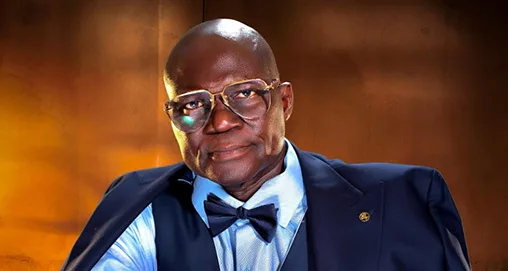





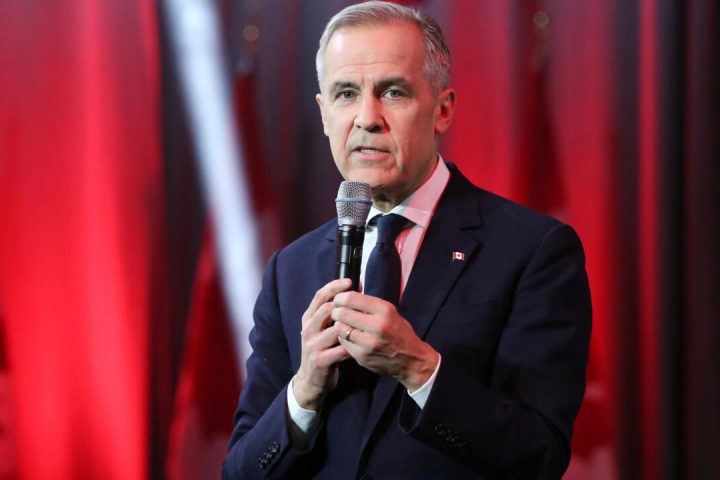






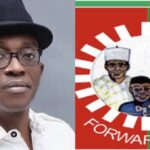
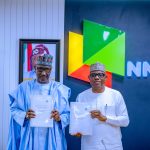
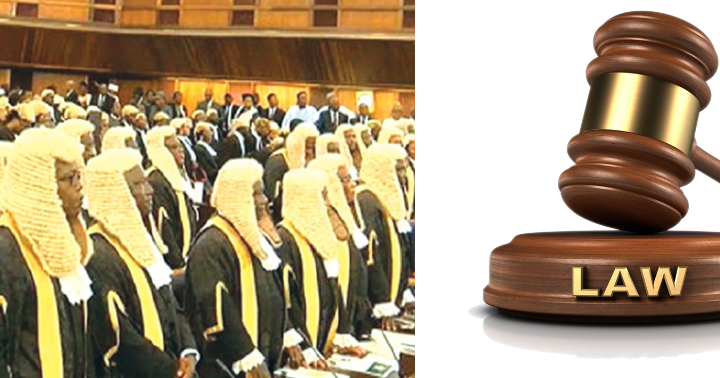
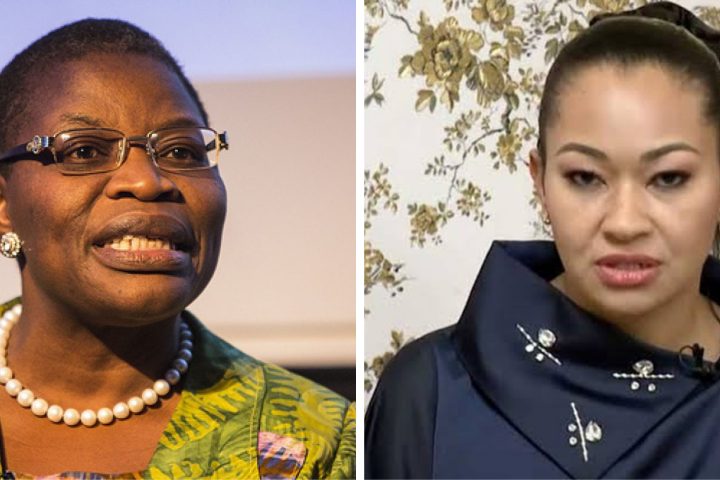
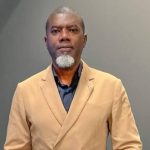
Follow Us